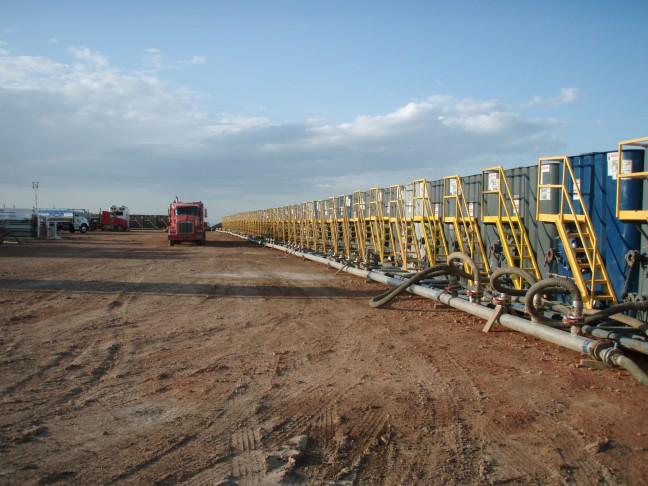Wisconsin’s booming frac sand mines have shown few signs of slowing down, even as oil prices remain at their lowest in months.
The mines, located primarily in western and northwestern Wisconsin, provide sand necessary in hydraulic fracturing sites across the country. The sand is taken from the sides of hills and bluffs in-state and shipped by train to mines elsewhere, said Jay Zambito, a geologist and assistant professor for University of Wisconsin extension.
Zambito said the sand’s crucial role in hydraulic fracturing is what is saving it from a rapid price decrease, even as the price for the oil continues to decline.
Frac sand mining business booms in Wisconsin, sparks controversy
“With the hydraulic fracturing process, the more sand they use per well, the more oil and gas they’re able to recover,” Zambito said. “So even if there are fewer wells being drilled, if the wells being drilled are using more sand that means there might not be a drop in the demand for sand from Wisconsin.”
The drop in oil prices will likely force each hydraulic fracturing site to try to get more and more oil from each mine, which increases the demand for the sand necessary in the frac mines.
Dan Masterpole, a conservationist for Chippewa County and director of Land Conservation and Forest Management Department, said he has seen no signs of a slowdown for the industry. His county is the source of much of the frac sand found in Wisconsin.
“We haven’t seen the direct effect as yet from the reclamation-permitting side,” Masterpole said.
Masterpole said although he is able only to comment on his observations of the mines and their permit requests in Chippewa County, he does not think dropping oil prices are having an effect.
He said applicants that had filed for permits in the third and fourth quarter of 2014, when the price of oil began its descent, are systematically proceeding through the permitting process.
“Those that have permits and active mines were at full production during the third and fourth quarters of 2014,” Masterpole said.
He said in planning for 2015 and reviewing existing permits, the mine operators have informed him they intend to maintain full production for the duration of the new year, even as oil prices show no signs of increasing.
In fact, the industry may actually be growing. Masterpole said some companies have expressed an interest in starting up mines and processing facilities in Chippewa county and are preparing to enter the permitting process. Additionally, he said the county continues to see investments in rail infrastructure designed to provide the structure to meet anticipated market demand.
The controversies in the area of mining sand for hydraulic fracturing are also unlikely to slow down in the near future.
The industry has seen a plethora of debate since its inception in recent years, with environmentalists and residents voicing concerns about the mines’ impact in their surrounding communities, while others say the mines have brought jobs and economic growth for rural communities.













